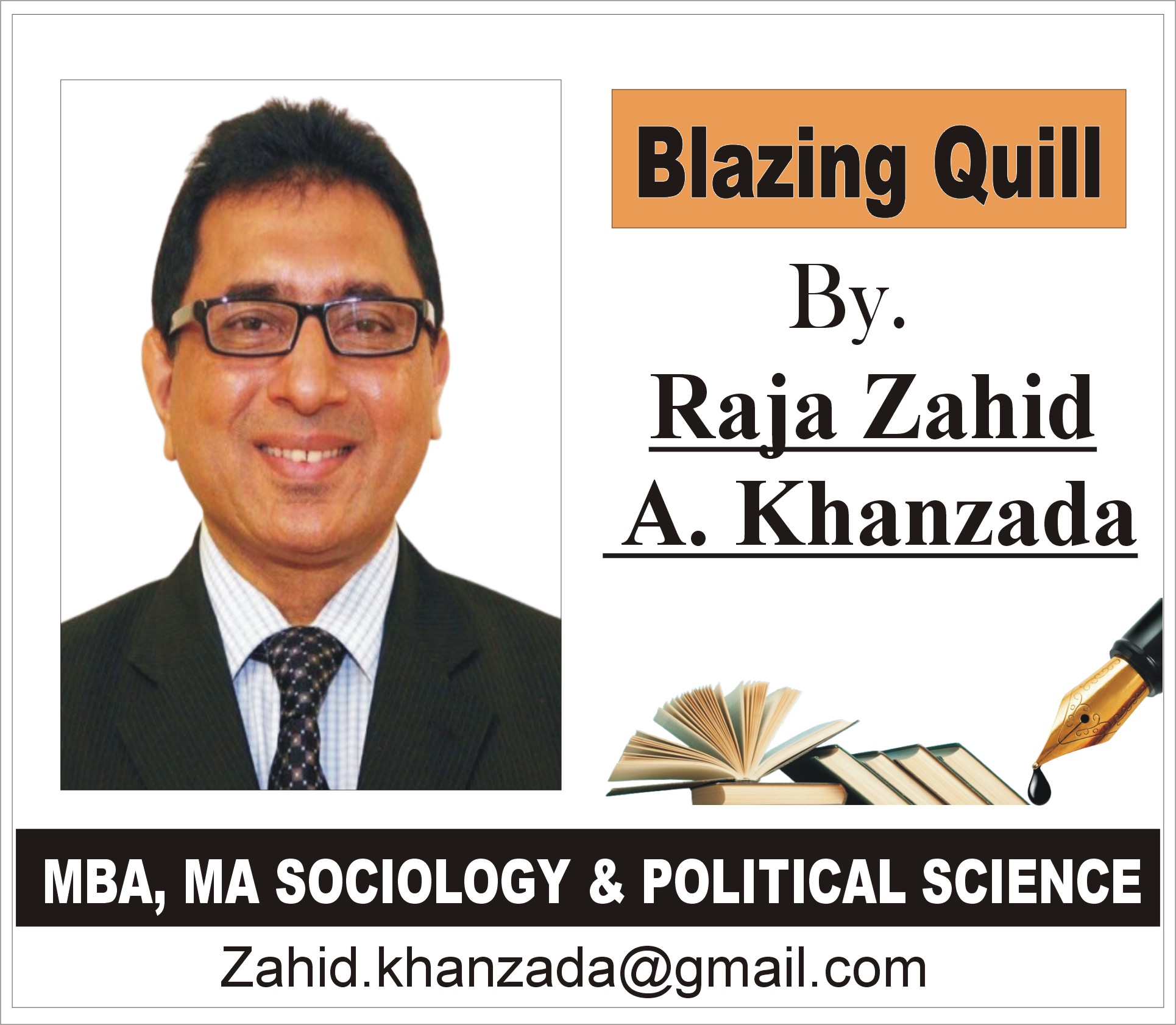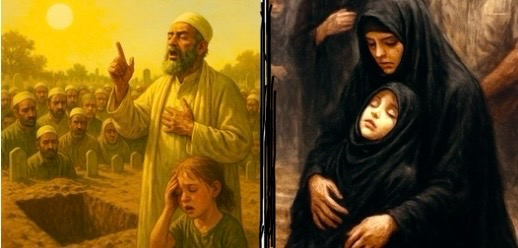A Funeral Scene in Houston
The Reminder of Death and the Length of a Sermon
By: Raja Zahid Akhtar Khanzada
In the blazing heat of Houston, when the sun scorched overhead and the temperature reached 102 degrees, we all became witnesses to a moment of profound grief. It was the funeral prayer and burial of the mother of America’s renowned national promoter, Rehan Siddiqi. From Dallas and Houston, hundreds of friends, relatives, and community leaders had gathered to stand with the bereaved family.
For the family, this was a moment of immense trial and sorrow. They had remained awake through the night, burdened by grief, and now, together with their loved ones, they came to the cemetery to bid farewell—to lay their mother, their grandmother, to eternal rest. The Qur’an reminds us:
“كُلُّ نَفْسٍ ذَائِقَةُ الْمَوْتِ” (آلِ عمران: 185)
“Every soul shall taste death.”
This truth was manifest to all, that one day every living soul must descend into the soil. Yet in that painful hour, another trial descended upon us. At the moment of burial, as we stood around the grave, the burning sun poured down its flames and the heat of 102 degrees seemed to melt human resolve. At such a time, instead of easing the hearts of the mourners with words of gentle comfort, the imam’s lengthy sermon became another burden. A sermon which, instead of serving as a reminder, felt like an additional ordeal for those already weary from grief and the sweltering heat.
From what little knowledge I have of faith, it has always been the tradition at funerals for scholars to offer short reminders, words that awaken the heart, reminding us of death and the eternal meeting with our Creator. As the Messenger of Allah ﷺ said:
“إن طول صلاة الرجل وقصر خطبته مئنة من فقهه” (صحیح مسلم)
“The length of a man’s prayer and the brevity of his sermon are signs of his knowledge and understanding.”
But here the opposite unfolded. The imam’s sermon stretched on endlessly, until the mourners were overwhelmed by the scorching heat. Rehan Siddiqi’s little daughter, already crushed by the grief of losing her grandmother, collapsed near the grave, faint from the burning sun. People rushed to lift her, poured cool water on her face, and placed her in a car. Yet, despite witnessing this tragedy, the sermon continued without pause.
I gathered courage and said respectfully, “Sir, people are struggling in this heat please shorten your address.” But my words fell on deaf ears. The sermon continued. Behind me, many others whispered the same plea, yet the sensitivity of the moment kept them silent. The sermon resembled the lengthy Friday khutbah, rather than the concise reminder suited to such an occasion.
And yet, what we have learned is that Islam is a religion of ease, not of hardship. The Qur’an proclaims:
“يُرِيدُ اللَّهُ بِكُمُ الْيُسْرَ وَلَا يُرِيدُ بِكُمُ الْعُسْرَ” (البقرة: 185)
“Allah intends ease for you, and He does not intend hardship for you.”
The Messenger of Allah ﷺ said:
“بشِّروا ولا تنفِّروا، ويَسِّروا ولا تُعسِّروا” (صحیح بخاری)
“Give glad tidings and do not drive people away; make things easy and do not make them difficult.”
But alas, at this funeral the sermon brought hardship instead of ease. Under the punishing sun, frail elders, children, and women were drenched in sweat. The women, burdened further by their abayas, endured the heat doubly. My companions from Dallas, Amir Mukhani and Muhammad Abbas, were faint with exhaustion. I saw Houston Police Chief and community leader Muzaffar Siddiqi visibly angered; later, I learned that he too had fallen ill due to the severe heat. Some friends had only attended the funeral prayer, refraining from going to the cemetery, perhaps deterred by the scorching sun and the imam’s prolonged sermon.
This raises a grave reflection: the mosques where thousands gather every Friday are not without issues of transparency and trust. Houston’s senior journalist, Manzoor Memon present at the burial told me that the imam of this mosque is also its legal owner. I was astonished. He added that many mosques here are treated as private property. Allegations even exist that this imam once transferred mosque donations into his personal account. In such circumstances, if a sermon were brief and purposeful, it might draw people closer to faith. But when it becomes a source of hardship and weariness, it risks pushing hearts away.
This writing is not an attempt at character assassination it is a collective reminder. Funerals are moments of reflection and admonition, not occasions for self-indulgent oratory. Scholars should speak briefly, yet touch the hearts of mourners with words of hope and comfort. As the Prophet ﷺ advised:
“أقصروا الخُطب، فإن في الإطالة فُتنة”
“Keep the sermons short, for indeed prolonging them creates trials.”
The passing of Rehan Siddiqi’s mother not only devastated her family but also cast a shadow of grief over the entire Pakistani-American community. May Allah forgive her, elevate her ranks, and grant patience to the family.
From this incident, we must all take a lesson. Present religion with ease, not with hardship. Lighten the burden of those who grieve, do not weigh them down further. Offer sermons that are brief, purposeful, and filled with gentleness.
So that never again does a little girl, already broken by loss, collapse under the double weight of sorrow and the searing sun. And so that the reminder of faith may remain what it was meant to be، light, guidance, and eternal comfort.




